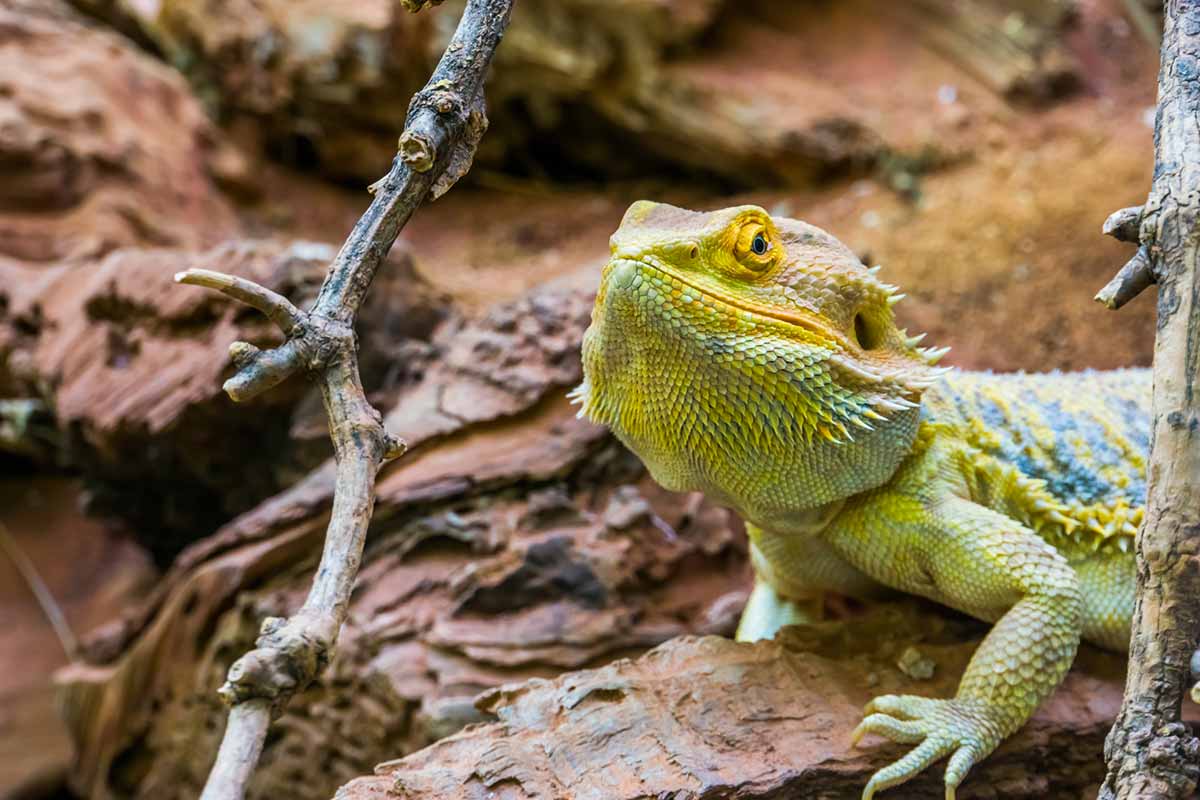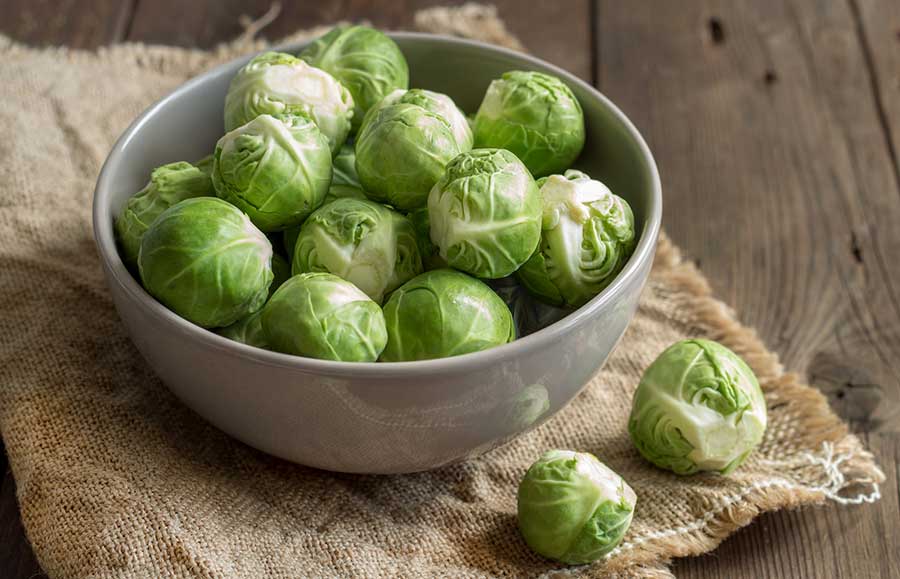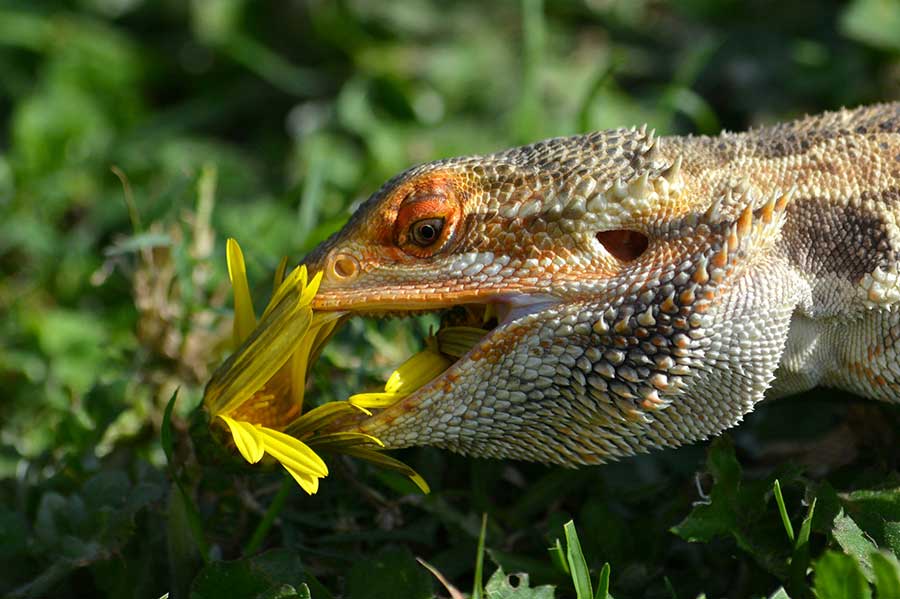Children tend to have a love-hate relationship with Brussels sprouts, though they are considered by many to be a superfood. But what about beardies? Can bearded dragons eat Brussels sprouts?
The short answer is no.
To be clear, Brussels sprouts are not outright toxic to beardies, and eating one won’t cause a sudden health crisis, as can be the case with other foods.
However, Brussels sprouts can be dangerous to beardies if eaten on a regular basis. This is because they leach
Read on as we explain the role of
What’s the Deal with Beardies and Calcium ?
Before we get into exactly why Brussels sprouts aren’t the best food for bearded dragons, it’ll help to first go over why
Beardies need lots of
If they don’t get enough
How Much Calcium Do Bearded Dragons Need?
How much
- Hatchlings require 650 mg of
calcium - Juveniles require around 1,100 mg of
calcium - Young adults need around 1,300 mg of
calcium - Adults need around 1,500 mg of
calcium .
Considering how important
Plus their favorite food, insects, while yummy and full of healthy protein, doesn’t tend to contain much in terms of
Bearded Dragons and Calcium Absorption
It’s actually quite difficult for bearded dragons to get all the
First of all, most plants contain varying amounts of
So, if a food is high in
While phosphorus is the main culprit when it comes to
Even once a lizard has absorbed
To sum up, the plant matter you feed your beardie needs to be high in
Read our complete guide to bearded dragon diets here.
So Can Bearded Dragons Eat Brussels Sprouts?
So, what does all that mean for Brussels sprouts? It means that while this veg contains plenty of things that are healthy for beardies and certainly aren’t toxic to them, they still should not be eating brussels on a regular basis.
Brussels sprouts are very healthy vegetables for humans, and they contain nutrients that tick boxes for your beardie. Specifically, they are rich in antioxidants, which boost immune health and lower inflammation. They also contain vitamin K for blood and bone health and vitamin C for immunity. Finally, they’ve also got some nice fiber for digestion and heart health.
But now let’s get to the huge red flag! 100 grams of Brussels sprouts contain 42 mg of
This comes out to a downright pitiful
calcium to phosphorus ratio of around 1:1.5. For reference, any foods you offer to your bearded dragon should ideally have acalcium to phosphorus ratio of at least around 2:1.
Plus, Brussels sprouts also contain a fair amount of oxalic acid, which can further prevent
So, while you don’t exactly need to panic if your beardie gets its claws on a Brussels sprout and munches it down (depending on what else it was prepared with – beardies are, for example, lactose intolerant), it is just not a food that they should be eating. Full stop.
What Greens Are Good for Bearded Dragons?
If beardies shouldn’t be eating Brussels sprouts, what types of greens are healthy to include in their salad bowls? Various dark, leafy greens are among the very best staple foods for bearded dragons due to their high
The following greens are all good choices with a positive
- Mustard Greens: 104 mg of
calcium and 48 mg of phosphorus, 1.8:1 ratio - Watercress: 40 mg of
calcium and 20 mg of phosphorus, 2:1 ratio - Chard: 102 mg of
calcium and 58 mg of phosphorus, 1.7:1 ratio - Spinach: 56 mg of
calcium and 28 mg of phosphorus, 2:1 ratio - Kale: 98 mg of
calcium and 36 mg of phosphorus, 2.7:1 ratio - Beet Greens: 164 mg of
calcium and 58 mg of phosphorus, 2.8:1 ratio - Chinese Cabbage: 74 mg of
calcium and 26 mg of phosphorus, 2.8:1 ratio - Dandelion Greens: 104 mg of
calcium and 36 mg of phosphorus, 2.9:1 ratio - Parsely: 78 mg of
calcium and 24 mg of phosphorus, 3.2:1 ratio - Turnip Greens: 106 mg of
calcium and 24 mg of phosphorus, 4.4:1 ratio - Collards: 148 mg of
calcium and 19 mg of phosphorus, 7.8:1 ratio
These are just a few of the delicious greens that can fill their bowl. Bearded dragons can also have small amounts of fruits such as grapes, apples, papaya, and watermelon, plus loads of other vegetables like sweet potato, green beans, and more.
With all these great choices, there is no reason to be giving your beardie Brussels sprouts!
Read our full recommendations for the best greens for your beardie here.
FAQs About Feeding Beardies
What vegetables can bearded dragons not eat?
There are several vegetables that are toxic to bearded dragons, such as onions, garlic, chives, and leeks. There are also a number of fruits that can cause immediate health problems if ingested, chief among them avocados. Mushrooms are also bad for your beardie’s health.
Can bearded dragons eat cheese?
Bearded dragons are lactose intolerant and should avoid eating all dairy products, including cheese.
Can bearded dragons eat cucumbers?
Bearded dragons can eat small amounts of cucumber, and it makes a nice occasional treat. However, they shouldn’t have it too often, because its high water content can upset their stomachs and cause runny stools, leaving you with a sick, grumpy beardie and an especially dirty enclosure to clean.
Can bearded dragons eat avocados?
No, bearded dragons cannot eat avocados. Avocados contain a toxin known as persin. This can cause diarrhea and vomiting in the best case scenario and respiratory issues and death within a few hours in the worst case.
The Verdict
Brussels sprouts aren’t toxic to bearded dragons, and there is no need to panic if they get their hands on one. Still, Brussels sprouts should absolutely not be a regular inclusion in your beardie’s diet.
This is because beardies need lots of
Fortunately, there are plenty of other veggies and greens out there with loads of vitamins and a good
What are your favorite veggies to give your beardie? Share your recommendations with the community in the comments section below.




